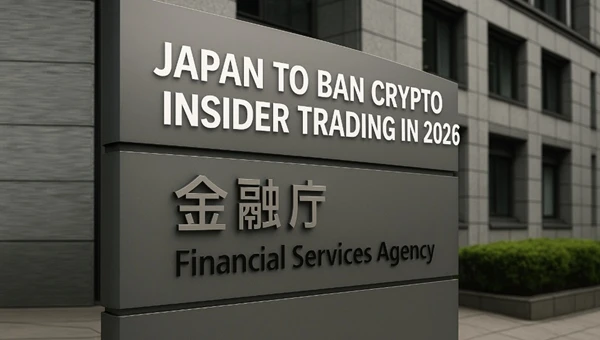


Cryptocurrencies in Japan are today regulated under the Payment Services Act, treating them largely as means of settlement rather than investment instruments. Under that structure, insider trading rules do not apply. The FSA argues that the market has grown in complexity and must be overseen under the Financial Instruments and Exchange Act (FIEA).
Nikkei reported that the FSA plans to propose amendments to the FIEA as early as 2026 to place crypto under insider trading prohibitions. That move would allow the Securities and Exchange Surveillance Commission (SESC) to investigate suspicious trading activity in digital assets. Reuters corroborated that the reclassification would bring crypto under the same insider rules that apply to equities.
A working paper published by the FSA in April 2025 explores key issues such as market access, classification of tokens, disclosure obligations, and preventing abuse. It divides crypto into “fundraising/business” tokens and “non-fundraising” tokens like Bitcoin or Ethereum. The more complex question will be linking tokens to discernible issuers to enforce disclosure rules.
Key Features of the Proposed Ban
1. Penalties based on illicit gains
Under the draft framework, insider trading in crypto would carry surcharges tied to profits derived from nonpublic information. For serious violations, cases could be referred to criminal prosecutors. The SESC would gain authority to issue administrative penalty orders.
2. Broad reach, including overseas actors
Proposals suggest that the rules would apply not just to domestic firms but also to foreign platforms serving Japanese residents. That global jurisdiction raises enforcement challenges. Even with extended reach, detecting misuse across jurisdictions will require coordination.
3. Defining insiders in crypto
Identifying insiders in traditional markets is relatively clear—company executives, board members, etc. In crypto the task is murkier. Tokens often lack formal issuers or centralized governance. The working group addresses this by proposing categorization, yet enforcement of insider rules on protocols or decentralized platforms will be novel territory.
4. Timeline and legislative path
The FSA aims to complete internal rulemaking by year’s end and submit a bill to parliament in the ensuing session. If approved, the changes could take effect in 2026. The draft must pass the Financial System Council and receive Cabinet approval before parliamentary discussion.
Comparisons with Peers and Past Precedents
In several jurisdictions, regulators are pushing to treat crypto more like securities. The United States, for instance, is expanding oversight in derivatives markets. Unlike many markets where crypto remains lightly regulated, Japan’s shift would align insiders’ liabilities across crypto and traditional instruments.
Following the Mt. Gox collapse in 2014, regulators implemented licensing requirements for crypto exchanges. Subsequent hacks at Coincheck and DMM prompted the introduction of stronger custody regulations. These precedents indicate that the FSA is willing to tighten rules incrementally, with an insider trading ban representing a potential next step.
One notable contrast is that many jurisdictions still do not have clear insider trading regulations for digital tokens. A proposed ban in Japan would be among the first measures to criminalize trading based on undisclosed cryptocurrency information explicitly.
Costs, Risks, and Rewards
Crypto exchanges and token projects could face substantial compliance costs. They will need systems to monitor trading, trace large or suspicious orders, and manage disclosure protocols. Token issuers may have to maintain records linking insiders to price-sensitive events.
Smaller protocols and platforms from lightly regulated regions may struggle to adapt. Some may restrict services for Japanese users or block access altogether. Others could move operations abroad or delay entering the Japanese market until the rules are fully clarified.
Without clear mapping of insiders or sufficient cooperation from foreign exchanges, the SESC may face enforcement gaps or legal resistance. Cryptocurrencies that operate in a highly decentralized manner may be immune to some traditional oversight techniques.
Yet supporters believe the shift will improve trust, reduce speculative misconduct, and encourage more institutional adoption.
Implications and Outlook
If passed, the ban would formalize the belief that digital assets cannot remain beyond the reach of market integrity principles. It would place Japan among the early adopters of strict insider regulation in crypto.
That said, success will depend on drafting clarity, technical implementation, and cross-border cooperation. Should the law fail in practice, enforcement gaps or legal challenges could undermine its utility.
He has worked with several companies in the past including Economy Watch, and Milkroad. Finds writing for BitEdge highly satisfying as he gets an opportunity to share his knowledge with a broad community of gamblers.
Nationality
Kenyan
Lives In
Cape Town
University
Kenyatta University and USIU
Degree
Economics, Finance and Journalism


Facts Checked by Maryam Jinadu

 Fact checked by
Fact checked by 
 eabungana@gmail.com
eabungana@gmail.com 